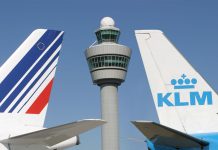Ryanair’s CEO, Michael O’Leary. Credit: Wikimedia.
Ryanair has announced plans to cut back the variety of UK flights by 10 per cent next yr, in response to Labour’s decision to extend air passenger duty (APD) within the recent Budget.
Ryanair CEO Michael O’Leary criticised the move, describing it as “damaging” for the UK’s tourism and air travel competitiveness. This reduction in flights could lead on to as much as five million fewer passengers passing through UK airports. Less demand tends to equal higher prices.
Labour’s Air Passenger Duty hike on UK travel
Labour’s latest Budget confirmed that from 2026/27, air passenger duty (APD) on short-haul flights will see a modest increase, adding as much as £2 per economy ticket. Meanwhile, private jet passengers are set to face a 50 per cent rise in APD, which is anticipated to generate additional revenue while placing more of the burden on richer travellers. According to the Chancellor, Rachel Reeves, APD had not kept pace with inflation in recent times, prompting the necessity for an adjustment.
Michael O’Leary responded strongly to the Budget announcement, claiming the policy would make “air travel far more expensive for unusual UK families.” He argued that the increased duty will make the UK less attractive to travellers, especially as compared to European nations like Ireland, Sweden, Hungary, and Italy, which have recently reduced or eliminated travel taxes to encourage tourism.
In a press release, O’Leary said, “Chancellor Rachel Reeves’s idiotic decision to further raise the UK’s already high air travel taxes will deliver cuts, not growth.”
Lower profits for Ryanair despite record-breaking air traffic
Ryanair experienced a record-breaking August with over 20.5 million passengers. However, the airline’s profits fell by 46 per cent earlier this yr because of a 15 per cent drop in average flight prices in June. Just this week, Ryanair offered 20% off chosen flights for a limited time.
The dip in prices emphasises the airline’s reliance on maintaining competitive ticket fees and its sensitivity to regulatory changes that will inflate operational costs.
Escape the ordinary and discover the extraordinary! From bustling cities to serene landscapes, every journey begins with a single step—let us guide yours. Enjoy curated itineraries, hidden gems, and hassle-free bookings designed for explorers at heart. Whether it's a weekend getaway or a globe-trotting adventure, your Next unforgettable experience is just a click away.










